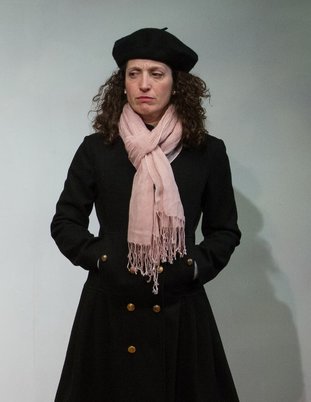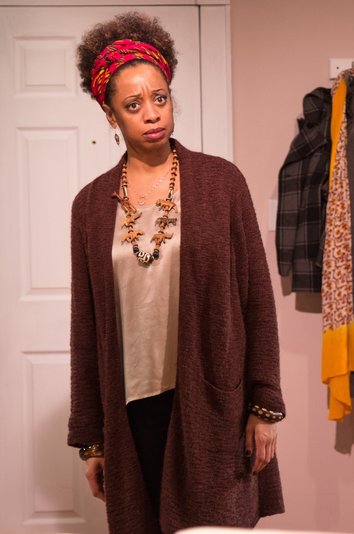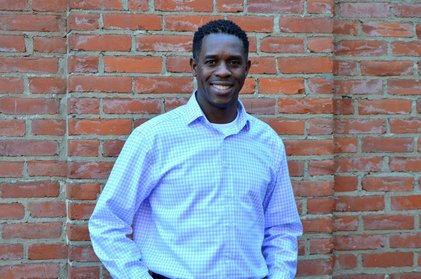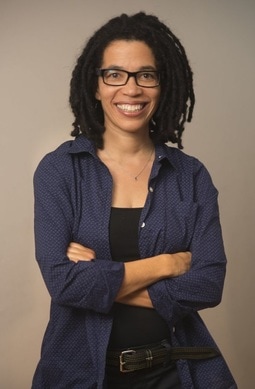 Marianne DiMascio as 'Annie' in THE CALL
Marianne DiMascio as 'Annie' in THE CALL Annie is smart, caring, and imperfect. Throughout the play, we witness her navigating many new circumstances. I imagine her as a novice hurdler. She sprints towards each obstacle and makes her best attempt to clear it. Sometimes she makes the leap with grace but more often she stumbles, scrapes her knees, and hurts innocent bystanders such as her friends and her husband.
Are there any connections that you see between you and your character?
I also imagine myself as a novice hurdler whenever I try something new or scary. And fumbles, skinned knees, and failures remind me I (thankfully) still have much to learn in this life.
Annie and I also share a love of cooking. I think we both show our affection for people by cooking for them. My husband is fond of saying “Thanks for loving me with food.”
What do you like most about this play?
The playwright Tanya Barfield has an ability to capture very realistic dialogue. Characters stop speaking mid sentence, they finish others’ thoughts, and often use non-sequiturs. As you can imagine, this makes line memorization a beautiful challenge. The actors in this cast do an amazing job of breathing life into the dialogue, while deftly moving from dramatic to comedic moments.
Rehearsing this play brings me great joy and angst. Layered throughout the script are themes of identity, privilege, racism, and motherhood. Its impact on me extends far beyond the rehearsal room.
Do you have a favorite line?
“You want a child from Africa but you do not want Africa.”
How would you describe the play to our audience?
The Call is a comedy with dramatic moments (or a drama with comedic moments) about friendship, marriage, and parenthood. The Call also offers a feast for your senses. There is food or drink in nearly every scene! And even though you might be able to smell the delicious mango coulis, please keep your hands off the actors’ plates.
What would you like them to leave thinking or talking about?
I hope audience members talk about any of the play’s themes and events with their friends, families, and neighbors. I hope this play prompts discussions long after people have left the theater.






